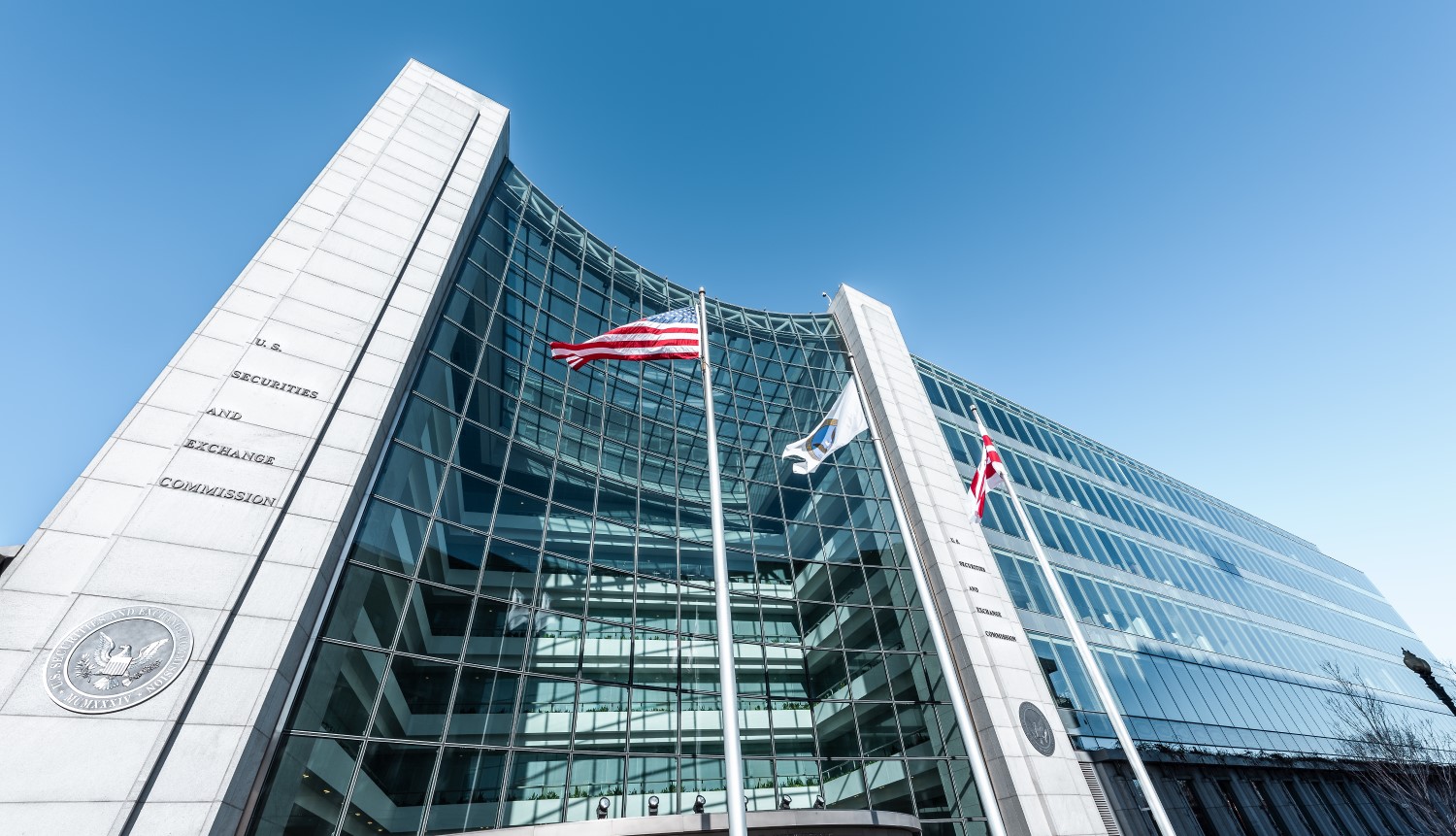SEC’s DeFi Rulemaking Do-Over Falls Short
In April, the U.S. Securities and Exchange Commission (SEC) reopened the comment period for proposed set of rules that would redefine various blockchain protocols as U.S. regulated securities exchanges, a second try at reining in decentralized finance (DeFi) from early 2022.
The public has until Tuesday, June 13 to submit comments. And comment everyone should, because the fatal flaws of this proposal have only been exacerbated in this latest version.
Alongside the SEC’s enforcement-first mindset, this attempt at rulemaking serves as compelling evidence that new U.S. legislation – (perhaps something like the recently published market structure bill sponsored by House Financial Services Committee Chair Patrick McHenry (R-NC) and Agriculture Committee Chair Glenn “GT” Thompson (R-PA) – is sorely needed.
Bill Hughes is senior counsel and director of global regulatory matters at ConsenSys.
Torturing the securities laws
The central problem with the SEC’s proposal is that trying to treat blockchain protocols as regulated exchanges simply cannot be squared with the Exchange Act of 1934, existing exchange regulations or an accurate understanding of blockchain technology. What would it mean for something like Ethereum to be treated as a securities exchange?
To set the scene, laws regarding securities exchanges were passed to address the risks inherent in intermediated systems that bring together the orders of actual buyers and sellers. The U.S. Congress sought to regulate exchanges only insofar as they were centralized entities that possess a uniquely important role in setting market prices and otherwise affecting market conditions.
The SEC’s latest rulemaking proposal – which again, is open to comment – treats exchanges as any system that merely sets up potential buyers and sellers, allowing them to find and negotiate transactions with each other.
In fact, the SEC quite surprisingly fails to properly consider what an exchange does. In order to be an exchange, the law typically requires that an entity conduct functions commonly performed by a stock exchange. But the SEC disagrees, having apparently misapplied the standard statutory interpretation. Worse, the agency does not identify a single function a blockchain protocol performs that is akin to a stock exchange.
If this was not enough, the proposal trips over itself explaining who may be considered part of an exchange. It lists a few “important factors” of indeterminate weight that offer no real notice and only raise more questions as to what all this actually means for anyone participating in the blockchain ecosystem.
In particular, the proposal does not explain the threshold of “significant” token ownership at which blockchain users suddenly obtain sufficient control over the system to assume regulatory responsibilities. Nor does it address the circumstances when a service provider or third-party vendor begins exercising enough control to become responsible – alongside its clients – for a protocol or application.
In sharp contrast to these ambiguities, the existing law is clear: for a group of persons to be considered an exchange, they must act in concert (i.e. there must be agreement among them). The SEC summarily ignored this requirement. Instead, in order to ensnare decentralized finance (DeFi), the agency waters it down the notion of collective liability to include persons engaged in related activities.
But DeFi fails the actual legal test. Blockchain protocols encompass wide-ranging participants who are not always acting in concert. By their nature open protocols invite people who are invariably independent from each other, both in terms of functions and incentives.
Making matters more complicated, so-called groups who participate in protocols will almost always involve persons based outside the United States. That matters because U.S. securities laws generally do not apply extraterritorially. The SEC even recognizes this circumstance in passing, yet offers no analysis of how its proposal would affect groups that include overseas actors. This is a serious uncertainty that greatly distorts blockchain participation around the world.
Most blockchain-related comments on the 2022 proposal exhaustively covered the multiplicity of ways the SEC was vague – including the fact that in this initial version, the SEC seemed to be writing about blockchain but did not actually name it.
The 2023 draft, other than clarifying that, yes, the rules would apply to blockchain, cures almost none of long-standing problems. Relabeling “communication protocols” as “negotiation protocols” is just pasting a fresh label on the same, contaminated bottle. Chanting “facts and circumstances” like a mantra explains practically nothing.
As the Supreme Court itself has observed, rules are invalid where they rest on “terms so vague that men of common intelligence must necessarily guess at [their] meaning.”
This proposal places the burden squarely on the blockchain space to guess correctly what the rules are. That leaves everyone who guesses wrong – ranging from software companies like ConsenSys to the individual software developers who use our products – potentially facing hefty penalties. In a sense, this allows the SEC to determine whether a rule was broken after the fact – a form of retroactive punishment that due process forbids.
But it gets worse. Under the 2023 proposal, software developers who publish or republish code independently and for free – i.e., a developer who obviously is not establishing an exchange – at best “may be less likely” to face registration obligations if the code is subsequently repurposed for use by a supposed exchange. This is an inspired way to disincentivize the development of free, open-source software.
This attempt at rulemaking effort is essentially a gussied up ban on blockchain in the U.S.
Any good-faith attempt to stay on the right side of these proposed rules would be nothing more than a stab in the dark.
Wait, the old rule already applies?
The 2023 proposal also compounds confusion by making highly contestable pronouncements about the scope of its current regulation – namely, how the current definition of “exchange” in SEC regulations already applies to blockchain protocols.
This conspicuously off-handed pronouncement raises fundamental questions for stakeholders across the crypto industry as to whether they are already regulated, or at risk of future regulation or somewhere in between.
As Hester Peirce, on of five SEC commissioners, aptly put it: the proposal “embrace[s] stagnation, … urge[s] expatriation, and welcome[s] extinction of new technology.”
What benefits? At what cost?
As part of standard practice, the SEC must discuss the benefits and costs of their proposal and how they compare.
It is puzzling, therefore, how little attention this is given. For its part, the SEC confidently declares the main benefit is its expanded regulatory purview – as if that was all the reason one needs. With respect to costs, the proposal meekly offers that the fines would not be impossible to pay. As to their relative weight, consideration of which is a statutory requirement, the proposal is dead silent.
Any sober analysis from someone with a working knowledge of blockchain would quickly show that the benefits would be illusory and the costs immense.
The proposal appears to greatly underestimate the number of blockchain protocols that would be affected. Further, it does not recognize that these regulatory burdens are magnified for the ordinary individuals who participate in the blockchain ecosystem – such as validators, DAO members and liquidity providers.
First Amendment concerns and rules that chill to the bone
There are constitutional issues with how the SEC’s proposed rules would regulates speech. By expressly suggesting that software developers may be liable for their code – including those who develop software for non-business, purely expressive and very often explicitly political reasons – the proposal has a clear chilling effect, given the long-established fact that computer code is speech.
One would like to believe that broadly chilling blockchain innovation is not actually the commission’s goal, because that is clearly not a legally permissible basis for regulating. But that would require ignoring steadily building evidence of bias.
You have the SEC’s about-face on working with the blockchain space on a feasible regulatory framework; the learning sessions that morphed overnight into enforcement investigations; the backflip from “we need congressional action” to figuratively shouting down a discussion draft of new market structure legislation put forward by two House committee chairmen; and most especially, how the SEC leadership – Chair Gary Gensler – gleefully publicizes his hostility towards the blockchain ecosystem (in interviews, op-eds and even Twitter posts).
Just recently, for example, the Chair of this famously “non-partisan” regulatory agency asserted “we don’t need more digital currency.”
In this context, one cannot help but notice how the 2023 proposal brusquely dismisses commenters’ many concerns. It’s callous indifference to deterring innovation and driving market participants either out of the U.S. or out of business entirely is palpable. In effect (if not also in aim), this attempt at rulemaking effort is essentially a gussied up ban on blockchain in the U.S.
The commission should either withdraw this rule making in full or carve out blockchain explicitly. As proposed, it is unlawful.









